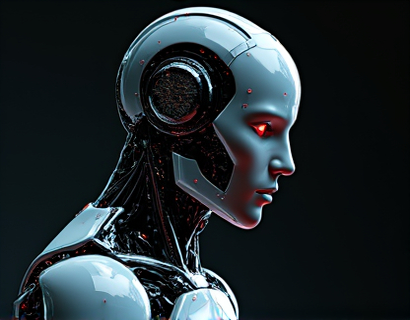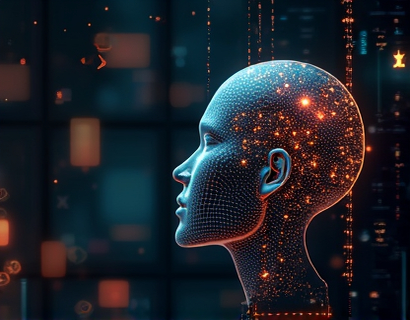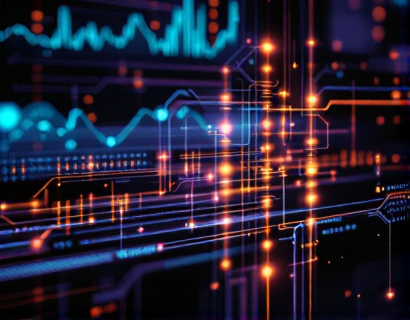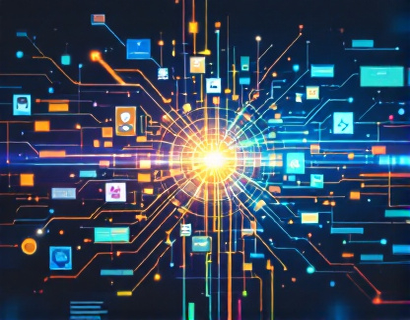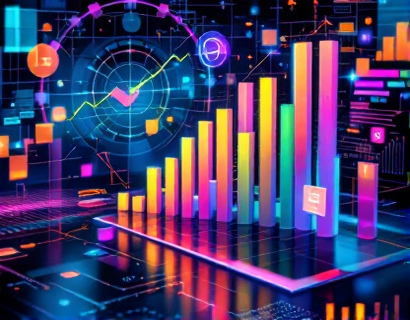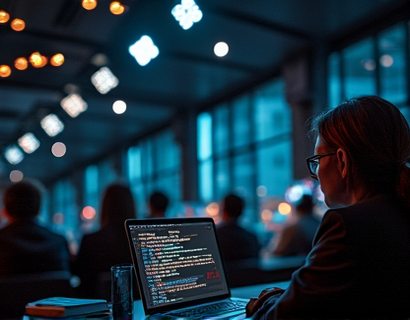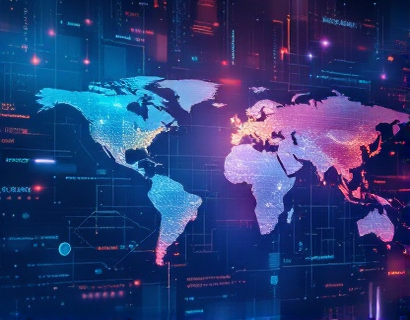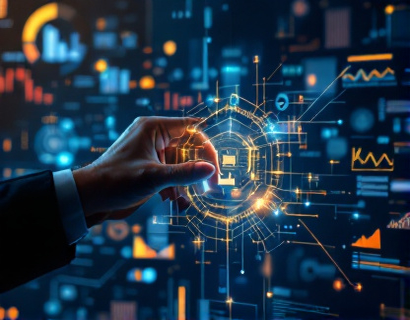Transforming Productivity with the Convergence of Cryptocurrency and AI
The intersection of cryptocurrency and artificial intelligence (AI) is giving rise to a new era of digital solutions that promise to revolutionize productivity for tech innovators and digital pioneers. This convergence is not just a technological curiosity but a practical approach to enhancing efficiency and streamlining tasks across various industries. As we delve into this topic, it's essential to understand the foundational technologies and their potential applications.
Understanding Cryptocurrency and AI
Cryptocurrency, at its core, is a digital or virtual currency that uses cryptography for security. It operates on a decentralized network, typically a blockchain, which ensures transparency and immutability. This technology has evolved beyond mere digital currencies, giving birth to a wide array of applications including smart contracts, decentralized finance (DeFi), and non-fungible tokens (NFTs).
Artificial intelligence, on the other hand, refers to the simulation of human intelligence processes by machines, particularly computer systems. These processes include learning (the acquisition of information and rules for using it), reasoning (using rules to reach approximate or definite conclusions), and self-correction. AI technologies such as machine learning, natural language processing, and computer vision are rapidly advancing, finding applications in everything from healthcare to manufacturing.
Synergy Between Cryptocurrency and AI
The combination of cryptocurrency and AI creates a powerful synergy that can significantly enhance productivity. One of the primary ways this synergy manifests is through the development of decentralized applications (dApps) that leverage AI to provide smarter, more efficient services. These dApps can operate without central authorities, reducing overhead costs and increasing transparency.
For instance, AI-driven algorithms can optimize the performance of smart contracts, ensuring they execute tasks with minimal delay and maximum accuracy. This is particularly useful in industries like supply chain management, where real-time tracking and automated contract execution can reduce bottlenecks and errors.
Enhancing Data Security and Privacy
Data security and privacy are paramount in today's digital landscape. The integration of blockchain technology with AI offers robust solutions to these challenges. Blockchain's inherent security features, combined with AI's ability to detect and mitigate threats, create a formidable defense against cyber threats.
AI can analyze vast amounts of data to identify patterns and anomalies, enhancing the security of blockchain networks. For example, machine learning models can be trained to detect fraudulent transactions or unauthorized access attempts, providing real-time alerts and automated responses to potential threats. This not only protects sensitive information but also builds trust among users.
Optimizing Resource Allocation
Resource allocation is a critical aspect of productivity, and the combination of cryptocurrency and AI can optimize this process. AI algorithms can analyze market data, user behavior, and other relevant factors to allocate resources more efficiently. In the context of cryptocurrency, this means optimizing the distribution of computing power for mining or validating transactions.
For instance, AI can predict peak usage times and adjust resource allocation accordingly, ensuring that the network remains stable and efficient. This optimization can lead to significant cost savings and improved performance, benefiting both individuals and organizations.
Automating Repetitive Tasks
One of the most immediate benefits of integrating AI with cryptocurrency is the automation of repetitive and time-consuming tasks. AI can handle routine operations such as data entry, transaction processing, and report generation, freeing up human resources for more strategic activities.
In the realm of DeFi, AI-powered bots can execute trades based on predefined criteria, reducing the need for constant human intervention. These bots can adapt to market conditions, execute complex strategies, and even manage multiple accounts, all while minimizing the risk of human error.
Personalized User Experiences
The convergence of cryptocurrency and AI also enables the creation of personalized user experiences. AI algorithms can analyze user data to provide tailored recommendations and services. For example, a crypto wallet powered by AI can suggest investment opportunities based on a user's risk profile and market trends.
Moreover, AI can enhance the user interface and experience of blockchain-based applications, making them more intuitive and user-friendly. This personalization not only improves user satisfaction but also increases adoption rates, driving broader acceptance of these technologies.
Case Studies and Real-World Applications
Several projects and platforms are already leveraging the synergy between cryptocurrency and AI to transform productivity. One notable example is a decentralized marketplace that uses AI to match buyers and sellers based on real-time demand and supply data. The platform employs smart contracts to ensure secure and transparent transactions, while AI algorithms optimize pricing and inventory management.
Another example is a blockchain-based project that uses AI to manage and optimize renewable energy distribution. The system predicts energy demand and adjusts the allocation of resources accordingly, ensuring efficient use of renewable sources and reducing waste. This not only enhances productivity but also contributes to environmental sustainability.
Challenges and Considerations
While the potential benefits are significant, there are also challenges and considerations to keep in mind. One of the primary concerns is the regulatory landscape. The intersection of cryptocurrency and AI operates in a relatively uncharted legal territory, and compliance with regulations can be complex.
Additionally, the technical complexity of integrating these technologies requires skilled professionals and significant investment. Organizations must carefully evaluate the costs and benefits before embarking on such initiatives. Ensuring data privacy and security remains a top priority, as the misuse of data can have severe consequences.
Future Outlook
The future of productivity through the convergence of cryptocurrency and AI is promising. As these technologies continue to evolve, we can expect even more innovative applications and solutions. The development of more advanced AI models, improvements in blockchain scalability, and increased adoption across industries will drive this transformation.
Tech innovators and digital pioneers have a unique opportunity to be at the forefront of this revolution. By embracing these technologies, they can not only enhance their own productivity but also contribute to the broader ecosystem, fostering a more efficient and secure digital world.
In conclusion, the integration of cryptocurrency and AI is not just a technological trend but a fundamental shift in how we approach productivity and efficiency. By leveraging the strengths of both domains, we can create next-generation digital solutions that empower individuals and organizations to achieve more than ever before.



